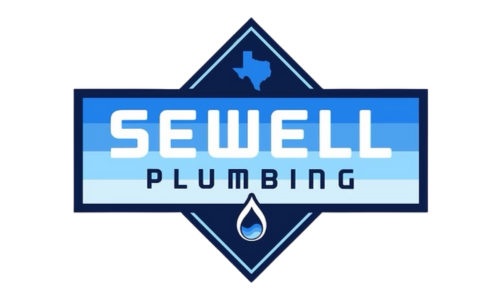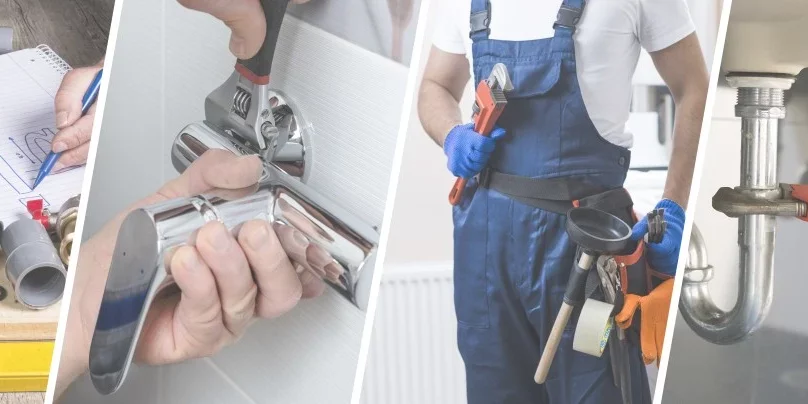General plumbing serves as the backbone of a well-functioning home, encompassing a complex network of pipes, fixtures, and systems designed to ensure a seamless water supply and efficient drainage. In this comprehensive guide, we delve into the world of general plumbing, shedding light on common issues, DIY tips, the role of professional plumbers, and much more.
Common General Plumbing Issues
Leaks and Drips
Among the most prevalent issues homeowners face is the annoyance of leaks and drips. These seemingly minor problems can lead to significant water wastage and potential damage to your property. Identifying and addressing leaks promptly is crucial for maintaining a water-efficient home.
Clogged Drains
Another common headache is the notoriously clogged drain. Whether it’s in the kitchen sink or the shower, a clogged drain can disrupt daily life. We explore effective DIY methods to unclog drains without resorting to harsh chemicals, promoting eco-friendly solutions for common problems.
Low Water Pressure
Low water pressure can be a frustrating experience, affecting daily tasks like showering and dishwashing. Discover the reasons behind low water pressure and explore DIY troubleshooting techniques to restore optimal flow without the need for professional assistance.
DIY General Plumbing Tips for Homeowners
Fixing a Leaky Faucet
A leaky faucet not only wastes water but can also lead to increased utility bills. Learn step-by-step instructions for fixing a leaky faucet, empowering homeowners to tackle this common issue without the need for a plumber.
Unclogging Drains Without Chemicals
Chemical drain cleaners can be harsh on pipes and the environment. Uncover alternative methods for unclogging drains using simple household items, ensuring a chemical-free approach to maintaining clear and flowing drains.
Troubleshooting Low Water Pressure
Is your shower lacking the force it once had? We guide you through the process of troubleshooting and fixing low water pressure issues in your home, enabling you to enjoy consistent water flow in every part of your house.
The Role of Plumbers in General Plumbing
Professional Inspection and Diagnosis
While DIY fixes are handy, there are instances where professional expertise is indispensable. Understand the importance of periodic inspections by plumbers to diagnose potential issues before they escalate into costly repairs.
Plumbing System Maintenance
Plumbers play a crucial role in maintaining the integrity of your plumbing system. Explore the benefits of routine maintenance services, ensuring the longevity and efficiency of your home’s general plumbing infrastructure.
Emergency General Plumbing Services
Disaster can strike at any time, from burst pipes to sudden leaks. Delve into the world of emergency plumbing services, learning how professional plumbers can provide swift and effective solutions when time is of the essence.
Key Components of a Plumbing System
Pipes and Fixtures
The plumbing system comprises an intricate network of pipes and fixtures. Gain insights into the different types of pipes and fixtures commonly used in homes, understanding their functions and potential maintenance requirements.
Water Heaters
Hot water is a modern-day necessity. Explore the various types of water heaters available, from traditional tanks to tankless systems, and learn about maintenance practices to ensure a reliable supply of hot water in your home.
Water Supply and Drainage Systems
A well-designed water supply and drainage system are essential for the proper functioning of your general plumbing. Uncover the intricacies of these systems and how they work together to provide a seamless water flow experience.
Importance of Regular General Plumbing Maintenance
Preventing Costly Repairs
Regular maintenance is a proactive approach to prevent minor issues from escalating into major and costly repairs. Discover how investing in routine maintenance services can save you money in the long run.
Extending the Lifespan of Plumbing Systems
Just like any other system in your home, your plumbing requires care to ensure a long and functional lifespan. Explore tips and tricks for extending the lifespan of your plumbing system, keeping it in optimal condition for years to come.
Ensuring Water Efficiency
Water efficiency is not only environmentally responsible but also contributes to lower utility bills. Learn about practices and technologies that enhance the water efficiency of your plumbing system, promoting sustainable living.
Sustainable General Plumbing Practices
Water Conservation Techniques
As the world becomes increasingly aware of environmental issues, water conservation takes center stage. Discover practical water conservation techniques that can be integrated into your daily life, contributing to a more sustainable and eco-friendly home.
Eco-Friendly Plumbing Fixtures
Upgrade your home with eco-friendly general plumbing fixtures designed to minimize water usage without compromising performance. Explore options for low-flow toilets, faucets, and showerheads that help you reduce your environmental footprint.
Green Plumbing Technologies
Embrace the future of plumbing with green technologies designed to make your home more sustainable. From rainwater harvesting systems to greywater recycling, explore innovative solutions that align with modern environmental standards.
Upgrading Your Plumbing System
Modern Plumbing Trends
Stay ahead of the curve by exploring the latest trends in plumbing. From smart home integration to advanced water purification systems, discover how modern plumbing trends can enhance the functionality and efficiency of your home.
Smart Plumbing Solutions
Enter the era of smart homes with plumbing solutions that can be controlled and monitored remotely. Explore the benefits of smart thermostats, leak detectors, and other technologies that bring convenience and peace of mind to homeowners.
Energy-Efficient Appliances
Upgrade your appliances to energy-efficient models, not only reducing your environmental impact but also cutting down on utility costs. Learn about energy-efficient options for water heaters, washing machines, and dishwashers.
Hiring a Professional Plumber: What to Look For
Qualifications and Certifications
When seeking professional plumbing services, it’s crucial to ensure that the plumber is qualified and certified. Understand the certifications to look for and how they reflect the expertise of the plumber.
Customer Reviews and Recommendations
In the digital age, customer reviews play a significant role in assessing the reputation of a plumber. Learn how to navigate online reviews and seek recommendations to make informed decisions when hiring a general plumbing professional.
Transparency in Pricing
Transparent pricing is a hallmark of a reputable plumber. Explore the importance of receiving detailed quotes and understanding the costs associated with plumbing services, avoiding surprises on the final bill.
Emergency Plumbing Situations and Quick Fixes
Dealing with Burst Pipes
A burst pipe is a general plumbing emergency that requires immediate attention. Gain insights into how to handle a burst pipe situation, including quick fixes to mitigate damage before the plumber arrives.
Handling Sewer Line Backups
Sewer line backups can be messy and hazardous. Discover the steps to take when faced with a sewer line backup, emphasizing the importance of professional assistance in resolving this challenging issue.
Shutting Off Water Supply in Emergencies
Knowing how to shut off the water supply in emergencies can prevent extensive damage to your home. Learn the location of your main water shut-off valve and the steps to take when quick action is necessary.
FAQs
1. What are the common signs of a general plumbing issue?
Common signs include water leaks, unusual sounds in pipes, slow drainage, low water pressure, and unexpectedly high water bills.
2. How can I fix a leaky faucet on my own?
To fix a leaky faucet, turn off the water supply, dismantle the faucet, replace the washer or O-ring, and reassemble. If unsure, consult online tutorials or seek professional help.
3. What should I do in case of a burst pipe?
Shut off the water supply immediately, open faucets to drain excess water, and contact a professional plumber for emergency assistance.
4. Are chemical drain cleaners safe to use?
Chemical drain cleaners can be harsh on pipes and the environment. Consider using alternative methods such as a plunger or a mixture of baking soda and vinegar.
5. How often should I schedule general plumbing maintenance?
It’s advisable to schedule annual general plumbing maintenance to detect and address potential issues before they become major problems.
6. What causes low water pressure in my home?
Low water pressure can be caused by sediment buildup in pipes, a partially closed water shut-off valve, or issues with the municipal water supply. Troubleshoot or consult a plumber for assistance.
7. How can I prevent frozen pipes in winter?
Insulate exposed pipes, keep cabinet doors open to allow warm air circulation, and let faucets drip during extremely cold weather to prevent freezing.
8. What are some eco-friendly plumbing practices?
Install low-flow fixtures, consider a tankless water heater, and explore rainwater harvesting or greywater recycling systems for a more sustainable plumbing setup.
9. How do I choose the right plumber for my needs?
Look for a licensed and insured plumber, check customer reviews, ask for recommendations, and ensure transparent pricing before hiring a professional.
10. What should I do during a sewer line backup?
Avoid using water and appliances, identify the main sewer clean-out valve, and contact a plumber for immediate assistance to resolve the backup.
Conclusion
In conclusion, mastering general plumbing is an essential aspect of homeownership. From understanding common issues and implementing DIY fixes to appreciating the role of professional plumbers and embracing sustainable practices, this guide has equipped you with the knowledge to navigate the intricacies of your home’s plumbing system. Remember, a well-maintained plumbing system not only ensures a comfortable living environment but also contributes to a more sustainable and eco-friendly future.







